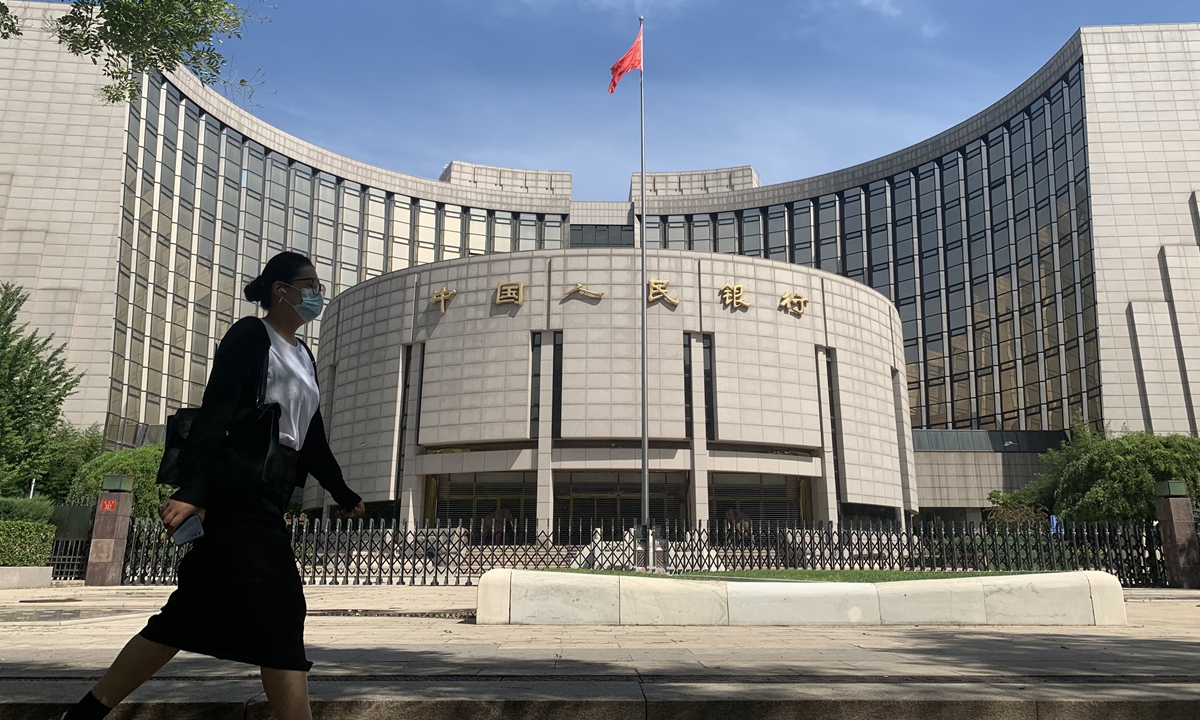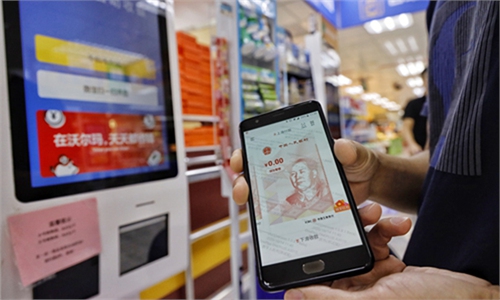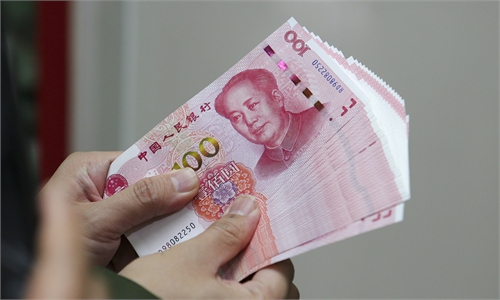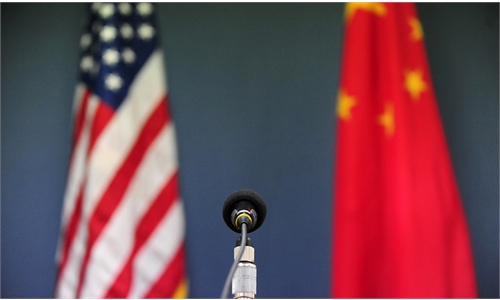China continues to be a ‘safe harbor’ for investments
US Fed’s monetary tightening may spur risks for world: economists

A view of the PBC building in Beijing Photo: VCG
The Chinese market will be a safe harbor for global capital as the country pursues a relatively independent macro policy and is in full swing to promote economic growth after emerging from COVID-19, while the US Fed regains hawkishness and signals higher-than-expected interest rate hikes, Chinese economists said.
US Federal Reserve Chairman Jerome Powell on Tuesday (US time) unexpectedly took a hawkish tone and noted that higher and faster rate hikes are needed to tame sticky inflation.
Inflation in the US saw an unexpected jump to 6.4 percent in January. While it was below the peak 9.1 percent seen last June, it remained elevated compared with the ideal 2 percent mark.
"If the totality of the data were to indicate that faster tightening is warranted, we would be prepared to increase the pace of rate hikes," Powell said in testimony at Congress.
The remarks startled the market and US stocks nosedived, with all three major indexes falling sharply. The Dow closed 1.72 percent lower, while the Nasdaq Composite dropped 1.25 percent and the S&P 500 was down 1.5 percent. Tech and financial stocks plummeted broadly.
The US Dollar Index rose, and the yield of the 2-year Treasury note hit a 16-year high and surpassed that of the 10-year Treasury note - an inversion of the yield curve, which has typically been viewed as a recession indicator.
All this will raise the risk of a recession in the US, and sluggish investment is likely to be the main cause of the potential US recession, given the high resilience of the labor market and continuous real wage growth, Ming Ming, chief macroeconomist at CITIC Securities, told the Global Times on Wednesday.
Based on the Fed's latest hawkishness and the fundamentals of the American economy, the "higher and faster" US rates hike may postpone the end of the global wave of financial tightening, Ming said.
Global liquidity is expected to tighten further, and a continued strong dollar will mount pressure on emerging countries' capital market and exacerbate their currency depreciation and their national debt risks, Ming warned.
After the US Dollar Index rose to a three-month high on Tuesday, the Indian rupee depreciated to 82.04 per dollar as of 6:30 pm on Wednesday, compared with its previous close of 81.98.
A US recession may spark a stock market crash as its decade-long bull market has caused significant bubbles, said Dong Dengxin, director of the Finance and Securities Institute of the Wuhan University of Science and Technology.
Additionally, the US hit its statutory $31.4 trillion federal debt ceiling two months ago, and more economies have started reducing their holdings of US Treasury debts, Dong said, noting that continuous dumping of US bonds would bring shocks to the US economy.
Under such circumstances, the Chinese market will be a safe harbor for global capital and continuously contribute to global economy, while the US is constantly shifting its own problems to the world, economists said.
China has maintained a relatively independent macro policy, with a prudent monetary policy and a proactive fiscal policy. The Fed's changed pace will have limited impact on China's economy, monetary policy and financial markets, they said.
On the trading day following Powell's remarks, China's A-share markets opened lower but pulled up after noon, with its benchmark Shanghai Composite index closing down only 0.06 percent. The Science and Technology Innovation Board 50 Index even gained 0.44 percent.
Overseas capital has poured into the A-share market since the beginning of the year. As of Wednesday's market close, net inflows into the A-share market through the north-bound link-ups between the Chinese mainland and Hong Kong bourses had totaled 182.8 billion yuan ($26.4 billion) over the past two months.
The Chinese economy is in recovery mode, and indicators such as industrial production, real estate sales and personal travel have all shown month-on-month improvements since the Spring Festival.
All sub-indexes of the Purchasing Managers' Index in February improved comprehensively, Ming said, noting that the support of domestic economic fundamentals for the yuan and the capital market will persist.
With its GDP target set at around 5 percent this year, launching all-out efforts for economic growth will be the main job for China this year, which will generate support for stock markets, Li Daxiao, chief economist at Shenzhen-based Yingda Securities, told the Global Times.



